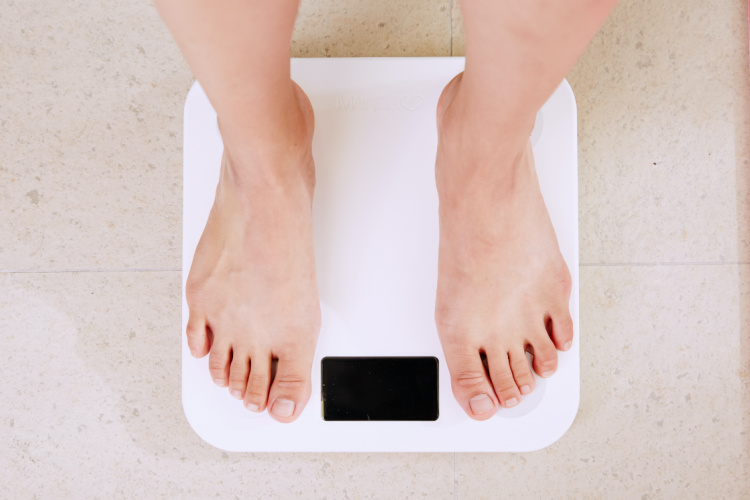What Happens to Your Body When You Lose 10 Pounds?
When it comes to losing weight, there’s a certain exhilaration that hits you when you get on the scale and see that your first 10 pounds are gone. For people trying to lose 50 pounds or more, that first 10 pounds is a significant milestone. You’ll probably feel excited, flushed, and — hopefully — proud of your success. It’s confirmation that you can — and will — reach your goals. And while the mental and emotional benefits are worth paying attention to, the physical benefits of losing 10 pounds are also quite impressive. We broke down seven things that happen to your body immediately after losing 10 pounds — changes to keep top of mind along with the well-earned exhilaration to keep you motivated and going strong. Less Joint Pain Excess pounds translate to excess strain on your body’s joints. That’s especially evident in weight-bearing joints like your hips, knees, and ankles. Just one pound of extra weight adds 4 pounds of pressure to your knees. That means that when you lose those first 10 pounds, you’re reducing 40 pounds of joint pressure on your knees! You’ll experience similar effects on your other joints, which may reduce or eliminate any joint pain you’ve been experiencing. Lower Blood Pressure Extra weight directly correlates with increased blood pressure. A National Center for Biotechnology Information study points out that losing weight “decreases blood pressure substantially both in hypertensive and normotensive subjects.” This is one of many that have demonstrated a positive relationship between weight loss and lowered blood pressure. Researchers have also estimated that every pound lost equates to a one-point decrease in blood pressure. That means your first 10 pounds off likely resulted in a 10-point reduction, helping to improve all sorts of high blood pressure-related risks, such as those from heart disease, stroke, kidney disease, and more. Reduced Risk of Serious Health Complications Countless studies have found a link between excessive weight and a lengthy list of health-related issues — everything from cancer, diabetes, heart disease, and stroke to sleep apnea, gout, and even mental health issues. The more weight you lose, the more your chances of developing one of these debilitating diseases decrease. Better Sleep A healthier body weight means more balanced cortisol levels, which, in turn, means less stress and food cravings. That, in turn, can help give you a better night’s rest. Plus, higher weight is associated with sleep apnea, a potentially dangerous condition where your airways become blocked while snoozing. Healthier weights tend to decrease the risk of developing it. Lower Blood Sugar People who struggle with their weight often struggle with elevated blood sugar levels, too. That can directly result in developing pre- and type 2 diabetes, a condition that can lead to high blood pressure, heart attack, stroke, and blindness. If you’re at risk, losing just 5-10% of your body weight lowers your risk of developing diabetes by up to 58%! And that starts with the first 10 pounds, which will also likely reduce your blood sugar levels. Win-win. Less Belly Fat Dropping 10 pounds usually means you shed belly fat, which may mean you drop an entire clothing size! Reward your progress by heading to the store to buy some new clothes, if you can. At the very least, your pants are going to feel a lot loser, and you’ll probably be able to tighten your belt. Healthier Cholesterol Levels Experts recommend a cholesterol level of below 150mg/dl. Thankfully, if you use a healthy, balanced diet to lose weight, your cholesterol levels may have dropped, too. That, in turn, reduces your risk of developing cardiovascular diseases. One thing to note: If you used a keto or low-carb diet, you may not have lowered cholesterol when you lost those 10 pounds. As you continue on your weight loss journey, pay close attention to how your body feels every step of the way. You’ll probably find you have more energy, stamina, and drive as a direct result of all these physiological improvements. Celebrate each milestone and enjoy the changes you make to improve your life! ------------------------------------------------------------------------------------ Author: Caitlin H Diet-to-Go Community Manager Caitlin is the Diet-to-Go community manager and an avid runner. She is passionate about engaging with others online and maintaining a healthy, active lifestyle. She believes moderation is key, and people will have the most weight loss success if they engage in common-sense healthy eating and fitness.


When it comes to losing weight, there’s a certain exhilaration that hits you when you get on the scale and see that your first 10 pounds are gone.
For people trying to lose 50 pounds or more, that first 10 pounds is a significant milestone. You’ll probably feel excited, flushed, and — hopefully — proud of your success. It’s confirmation that you can — and will — reach your goals.
And while the mental and emotional benefits are worth paying attention to, the physical benefits of losing 10 pounds are also quite impressive.
We broke down seven things that happen to your body immediately after losing 10 pounds — changes to keep top of mind along with the well-earned exhilaration to keep you motivated and going strong.
Less Joint Pain
Excess pounds translate to excess strain on your body’s joints. That’s especially evident in weight-bearing joints like your hips, knees, and ankles. Just one pound of extra weight adds 4 pounds of pressure to your knees. That means that when you lose those first 10 pounds, you’re reducing 40 pounds of joint pressure on your knees! You’ll experience similar effects on your other joints, which may reduce or eliminate any joint pain you’ve been experiencing.
Lower Blood Pressure
Extra weight directly correlates with increased blood pressure. A National Center for Biotechnology Information study points out that losing weight “decreases blood pressure substantially both in hypertensive and normotensive subjects.” This is one of many that have demonstrated a positive relationship between weight loss and lowered blood pressure.
Researchers have also estimated that every pound lost equates to a one-point decrease in blood pressure. That means your first 10 pounds off likely resulted in a 10-point reduction, helping to improve all sorts of high blood pressure-related risks, such as those from heart disease, stroke, kidney disease, and more.
Reduced Risk of Serious Health Complications
Countless studies have found a link between excessive weight and a lengthy list of health-related issues — everything from cancer, diabetes, heart disease, and stroke to sleep apnea, gout, and even mental health issues. The more weight you lose, the more your chances of developing one of these debilitating diseases decrease.
Better Sleep
A healthier body weight means more balanced cortisol levels, which, in turn, means less stress and food cravings. That, in turn, can help give you a better night’s rest. Plus, higher weight is associated with sleep apnea, a potentially dangerous condition where your airways become blocked while snoozing. Healthier weights tend to decrease the risk of developing it.
Lower Blood Sugar
People who struggle with their weight often struggle with elevated blood sugar levels, too. That can directly result in developing pre- and type 2 diabetes, a condition that can lead to high blood pressure, heart attack, stroke, and blindness. If you’re at risk, losing just 5-10% of your body weight lowers your risk of developing diabetes by up to 58%! And that starts with the first 10 pounds, which will also likely reduce your blood sugar levels. Win-win.
Less Belly Fat
Dropping 10 pounds usually means you shed belly fat, which may mean you drop an entire clothing size! Reward your progress by heading to the store to buy some new clothes, if you can. At the very least, your pants are going to feel a lot loser, and you’ll probably be able to tighten your belt.
Healthier Cholesterol Levels
Experts recommend a cholesterol level of below 150mg/dl. Thankfully, if you use a healthy, balanced diet to lose weight, your cholesterol levels may have dropped, too. That, in turn, reduces your risk of developing cardiovascular diseases. One thing to note: If you used a keto or low-carb diet, you may not have lowered cholesterol when you lost those 10 pounds.
------------------------------------------------------------------------------------

Author: Caitlin H
Diet-to-Go Community Manager
Caitlin is the Diet-to-Go community manager and an avid runner. She is passionate about engaging with others online and maintaining a healthy, active lifestyle. She believes moderation is key, and people will have the most weight loss success if they engage in common-sense healthy eating and fitness.












